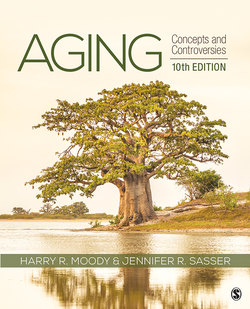Читать книгу Aging - Harry R. Moody - Страница 67
На сайте Литреса книга снята с продажи.
Questions for Writing, Reflection, and Debate
Оглавление1 Some critics have argued that disengagement theory may have accurately characterized the behavior of the older population in the 1950s, but that it was a mistake to infer that this pattern was universal. According to these critics, activity theory or continuity theory might well be a better description of how older people live today. If the critics’ view is correct, does it mean that any theories of aging simply express the way aging appears at a certain time in history? If so, how would it be possible to develop an account that is more general and not limited to a certain time and place?
2 The United States as a society tends to place a high value on success and achievement. Does that fact suggest that the goal of successful aging is an appropriate approach to thinking about growing old in the United States? Are there aspects of growing older that could present a problem for the goal of successful aging?
3 Psychologist Carl Jung believed that the psychological goal of later life is to become more and more oneself as an individual. What does this goal mean in practice? What drawbacks to this idea can you think of? If we adopt Jung’s approach, how would we evaluate older people who remain very much as they have always been, in contrast to older people who dramatically change their lives, say, after the point of retirement or widowhood?
4 Imagine that you are now 80 years old and have discovered that you may not have long to live. Your grandchildren have asked you to write about what you’ve learned about the meaning of life, especially in the last few years. In your statement, contrast what you believe now (as a future 80-year-old) with what you believed in the past (at what is your present age).
5 Assume that you are the activities director of a church-affiliated nursing home that prides itself on promoting the residents’ quality of life. Write a memo for the nursing home director outlining a range of activities that would help enhance the residents’ sense of the meaning of life in the long-term care facility.
6 Is the idea of meaning in life something purely personal and private, or does it have some wider social importance? Does discussing the question of meaning give us an understanding of older people’s behavior, or is it simply confusing? In addressing this question, consider other issues discussed in this book, such as assisted suicide, work and leisure, and the allocation of health care resources for life prolongation. How would the idea of a meaning for old age affect one’s view of these questions?
7 Consider carefully Lars Tornstam’s concept of gerotranscendence. Using only the simplest and most everyday language, try to give an explanation of gerotranscendence to a friend or relative who knows nothing about gerontology and is not particularly sympathetic to religion.
